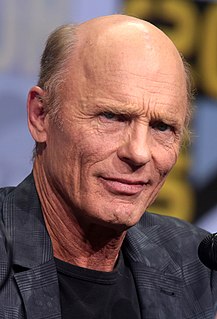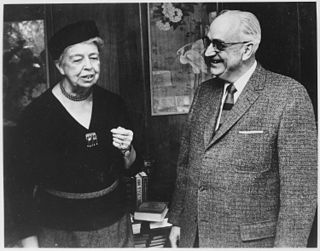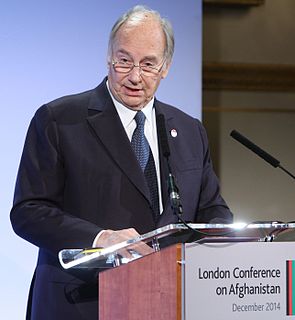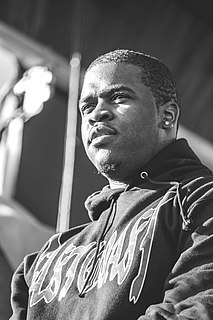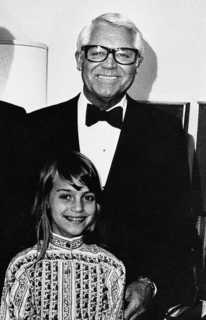A Quote by Ed Harris
Pollock said several times that he couldn't separate himself from his art. Not knowing much about modern art when I began to read about him, I was much more his persona - his struggles as a human being - that was interesting to me.
Related Quotes
When a trout rising to a fly gets hoooked on a line and finds himself unable to swim about freeely, he begins with a fight which results in struggles and splashes and sometimes an escape. Often, of course, the situation is too tough for him. In the same way the human being struggles with his environment and with the hooks that catch him. Sometimes he masters his difficulties; sometimes they are too much for him. His struggles are all that the world sees and it naturally misunderstands them. It is hard for a free fish to understand what is happening to a hooked one.
I would say that I learned that the heartbreak wasn't as much about me as the fact that my partner wasn't right with himself. I see where his life has taken him, and realize that the handwriting was on the wall. There were things that I had blamed myself for, but it was really more about his choices, his needs and his journey as a person. His desire for too much of everything made it a challenging relationship.
If it was a biopic about Glenn Greenwald, I would have immersed myself more fully in his personal life and gotten to know him as much as I could, but because it was much more about his relationship to this particular situation, to The Guardian, to Laura Poitras, and to Ewen MacAskill, and Edward Snowden, I was able to really learn a lot about him from reading his book and reading his many articles and accounts of that time.
The kiss began much the same as usual--Edward was as careful as ever, and my heart began to overreact like it always did. And then something seemed to change. Suddenly his lips became much more urgent, his free hand twisted into my hair and held my face securely to his. And though I was clearly beginning to cross his cautious lines, for once he didn't stop me. His body was cold through the thin quilt, but I crushed myself against him eagerly.
Much has been said about Robert, and more will be added. Young men will adopt his gait. Young girls will wear white dresses and mourn his curls. He will be condemned and adored. His excesses damned or romanticized. In the end, truth will be found in his work, the corporeal body of the artist. It will not fall away. Man cannot judge it. For art sings of God, and ultimately belongs to him.
My teacher introduced me to this photographer Eugène Atget. He was a French photographer in the late 1800s up until 1927 in Paris. He didn't consider himself an artist, but he was probably one of the artists of the 20th century. This guy documented all of Paris during those years. It's unbelievable. The books are phenomenal. The Museum of Modern Art has all his stuff now and [American photographer] Berenice Abbott saved his work. Not very much is known about his life, but the work is unreal and it totally spoke to me. He was the only artist for a number of years that I cared about at all.
My grandfather was a most gifted person, and amongst his many qualities, one of them had always particularly impressed me. While the past was a book he had read and re-read may times, the future was just one more literary work of art into which he used to pour himself with deep thought and concentration. Innumerable people since his death have told me how he used to read in the future, and this certainly was one of his very great strengths.
Roger Casement is an intriguing figure - humanitarian, Irish revolutionary, gay - and much had and would be written about him, there was something about his character as a conflicted man, an Irish Protestant who spent much of his time representing England in different African nations, a gay man who, true to the times, kept his sexual orientation to himself, that kept playing in my head. I read on and around him, but a historical figure is not a story - it's not even a character - so my story, the one that I would develop into Valiant Gentlemen, had yet to reveal itself.
Every work of art reaches man in his inner powers. It reaches him more profoundly and insidiously than any rational proposition, either cogent demonstration or sophistry. For it strikes him with two terrible weapons, Intuition and Beauty, and at the single root in him of all his energies... Art and Poetry awaken the dreams of man, and his longings, and reveal to him some of the abysses he has in himself.
I've got more in common with a three-toed sloth than I have with Winston Churchill. There is no easy comparison with any modern politician. The more you read about him, the more completely amazed you are about what he did - his energy, his literary fecundity, his ability to work - just unbelievable energy.
How many there are who still say, 'I want to see His shape, His image, His clothing, His sandals.' Behold, you do see Him, you touch Him, you eat Him! You want to see His clothing. He gives Himself to you, not just to be seen but to be touched, to be eaten, to be received within .... Let all of you be ardent, fervent, enthusiastic. If the Jews stood, shoes on, staff in hand, and eating in haste, how much more vigilant should you be. They were about to go to Palestine; ... you are about to go to heaven.
The script [of Regression] wasn't the draw for me. It was largely Alejandro [Amenabar] and his way of talking. To hear him talking about the script was way more interesting than the script. He wrote it, and so, English is his second language. It's an interesting thing. I've had that before. I was directed by Alfonso Cuarón before, too. It's always interesting when you're being directed by somebody like that. So much of directing is about communication, and finding the right words, and what it means, and how to convey certain emotions and ideas.
